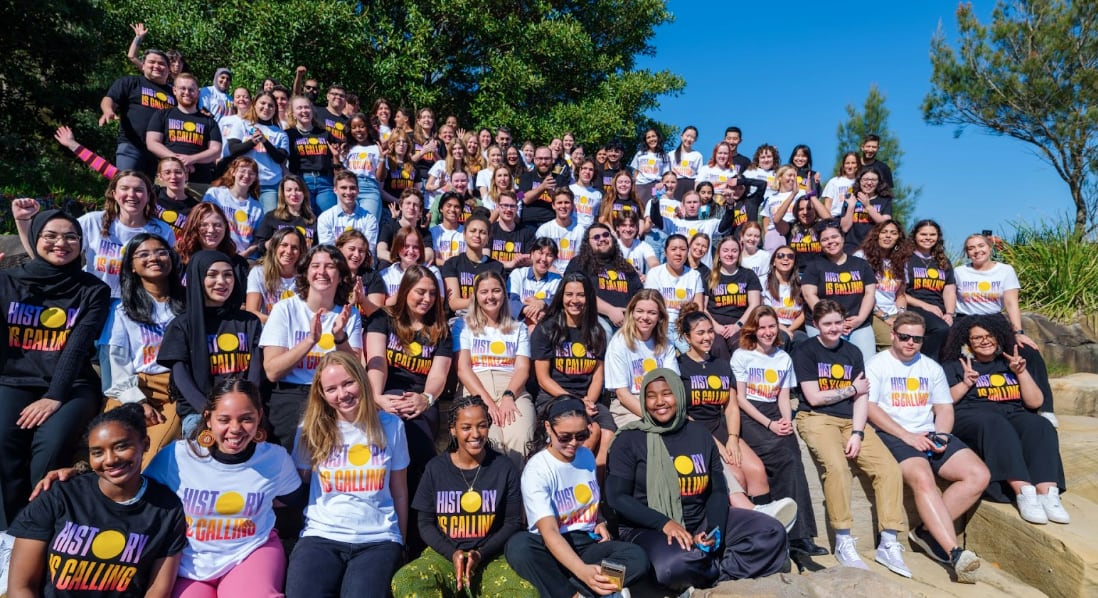
Read the Charter of Independence here.
In under a month, Australians across the nation will vote in a referendum that could change the Constitution — with younger voters expected to play a vital role in the outcome.
The vote will be held on Saturday, October 14, when Australians will have a say in recognising the Aboriginal and Torres Strait Islander Voice within the constitutional framework.
The Voice to Parliament Handbook, by Torres Strait Islander man Thomas Mayo and journalist Kerry O'Brien, explains that the Voice would be composed of a group of Indigenous representatives chosen by First Nations peoples across the nation.
Once enshrined in the Constitution, the Voice could operate as a permanent advisory body to make representations to Australian Parliament and the Executive (the Cabinet and Ministry) on legislation and policies of significance to Aboriginal and Torres Strait Islander Peoples. As the handbook explains, this would help further self-determination and provide a greater say on matters affecting them.
The referendum requires a "double majority" to pass: that is, a majority of voters nationwide, as well as a majority of voters in the majority of the states (at least four out of six states).
Historically, Australia has held 44 referendums — with only eight proposed changes approved by a vote of the people, with the most recent change made in 1977.
As the nation has geared up for October, so has the campaign for the Yes vote, which is relying on youth involvement for a favourable outcome.
Young voters make up almost half of those eligible to vote, so will have a substantial influence on the result.
Millennials (born in or after 1981) and Generation Z voters (born in or after 1997) made up about 43 per cent of the voting public (as of 2022), Australian Electoral Commission (AEC) figures show.
Nearly 450,000 or so Australians turned 18 this year (as at June 2023) and are eligible to vote too, according to the AEC.
The Indigenous Cultural and Community Engagement lead at the William Cooper Institute, Josef Tye, says a Yes vote could better ensure traction and meaningful change for Indigenous Communities, without being at the mercy of bipartisan politics.
“What it will do is actually create an ongoing dialogue," Tye says.
"So, as opposed to us just being sort of an 'in vogue' conversation every now and then during Reconciliation Week or NAIDOC Week, it'll actually provide for us to be part of that ongoing political discourse,” he says.
“It's trying to build a platform by which we can influence the colonial structures that have been imposed upon us.”
While Tye says the Voice may not act as a cure-all for the challenges faced by his communities, it will at least be a stepping stone towards creating change.
Tye wants to encourage people to practise responsible advocacy.
“Don't just look at the Indigenous social media or social media influencers, don't just look at the Indigenous X authors, don't just look at the Indigenous politicians.
"Talk to Indigenous people on their views on the issue, because there are a myriad of views,” Tye says.
“Try to exercise critical thought, and think critically about what progress actually is, what it actually looks like.”
Yes campaigner and youth advocate Rose Russell says young people have important voices in the political space.
“At the moment, 73 per cent of young people are in favour of the Voice and this is one of the highest levels of consensus, other than First Nations people being 80 per cent in favour of the Voice in the country,” she says.
“So young people have the power to really inform what the future of Australia looks like,” Russell says.
In addition to the members of the Voice being composed of Aboriginal and Torres Strait Islander communities, the membership would be gender-balanced. And the Voice would have two permanent advisory groups, with one on disability and the other on youth, as this Guardian explainer points out.
Russell also hopes a favourable vote will be Australia’s chance for a big step towards reconciliation.
“[A] big difference is we will get solutions designed by First Nations people, for First Nations people, that will make an impact,” she says.
“This is the first step to righting the wrongs of the past and coming together as a nation.
"We will no longer be a 200-year-old nation; we will be a nation that is 60,000 years old, rich with Indigenous culture.”
This will be Australia’s first national referendum since 1999, and the first time for voters born after 1980 to have a say in changing the Constitution.